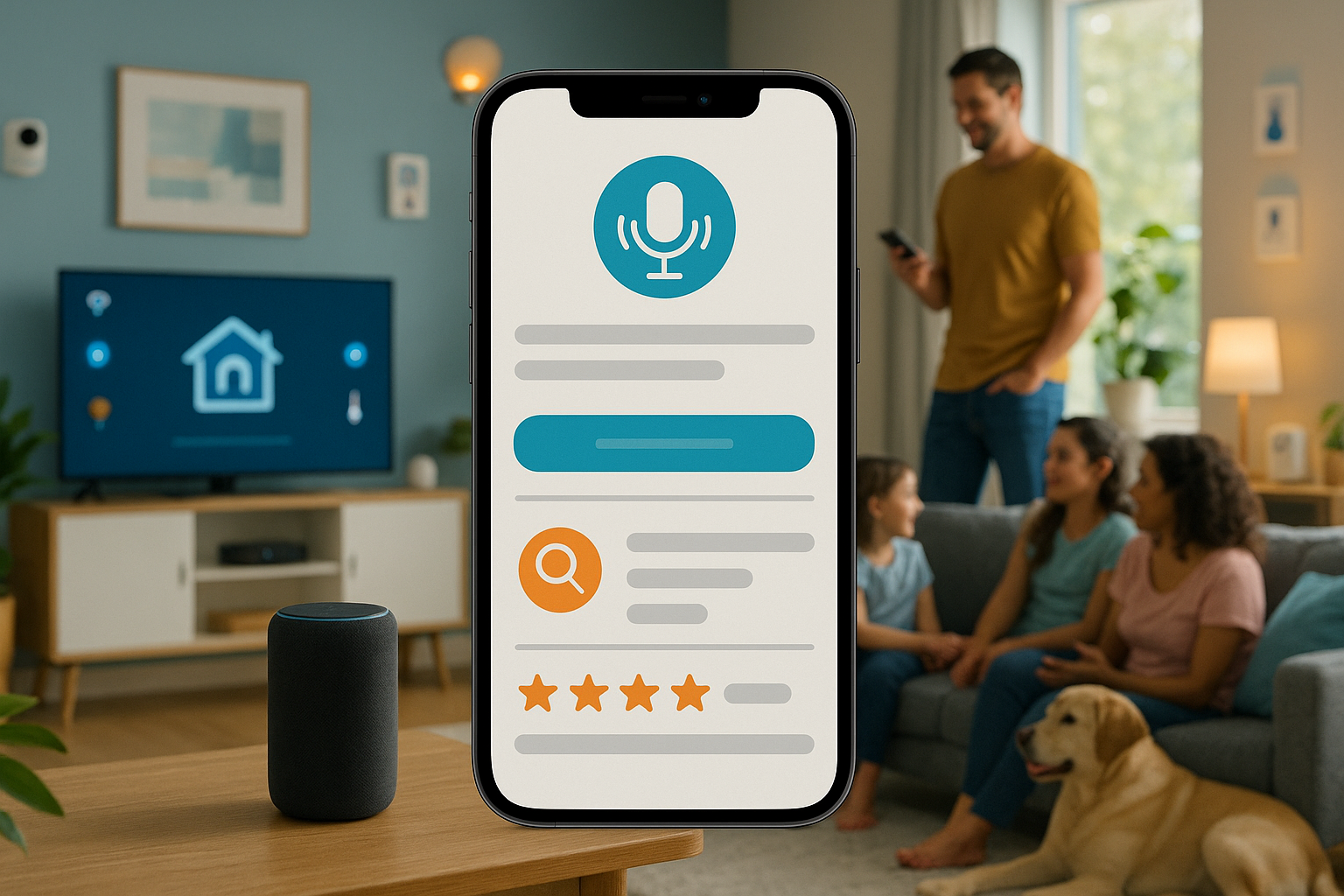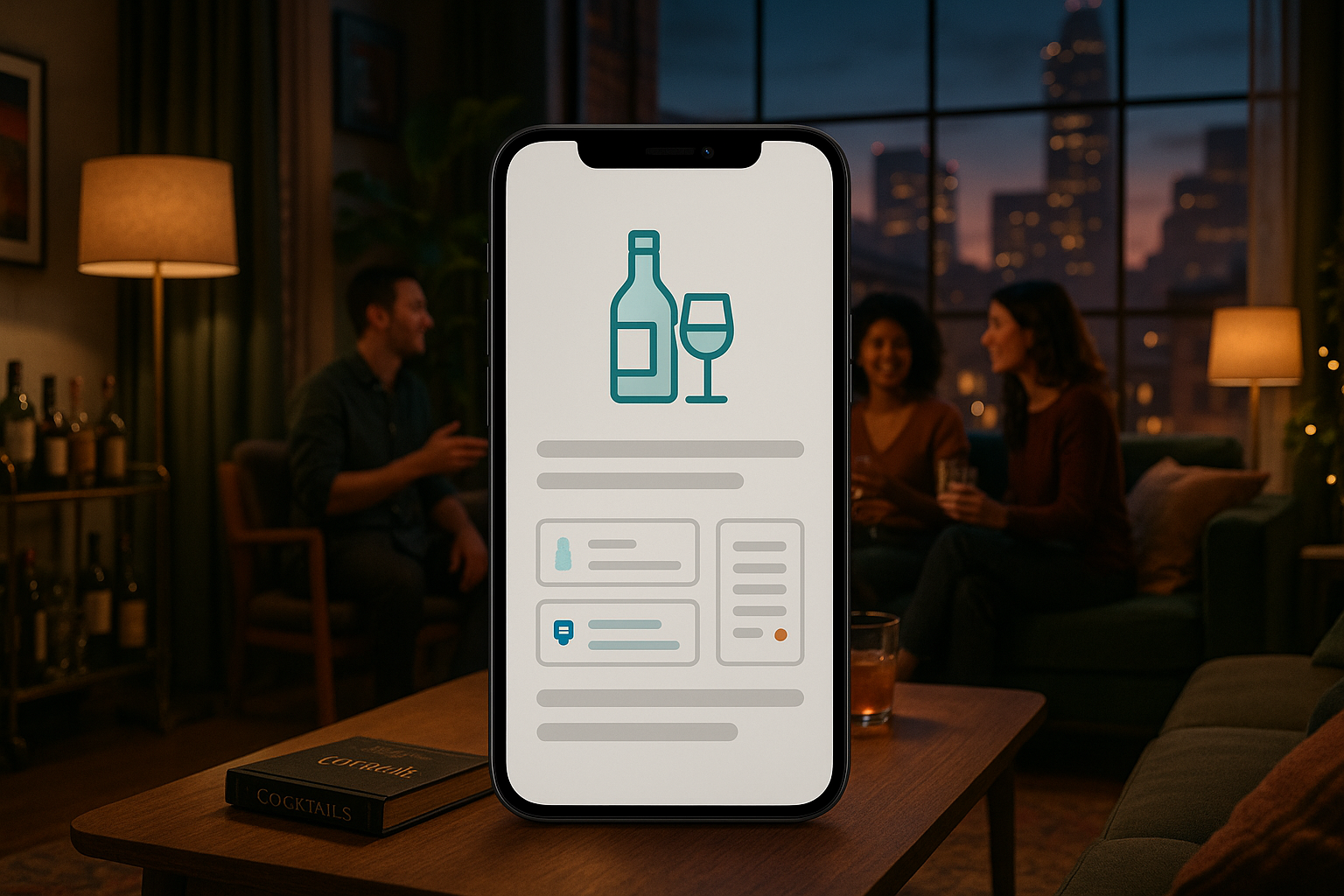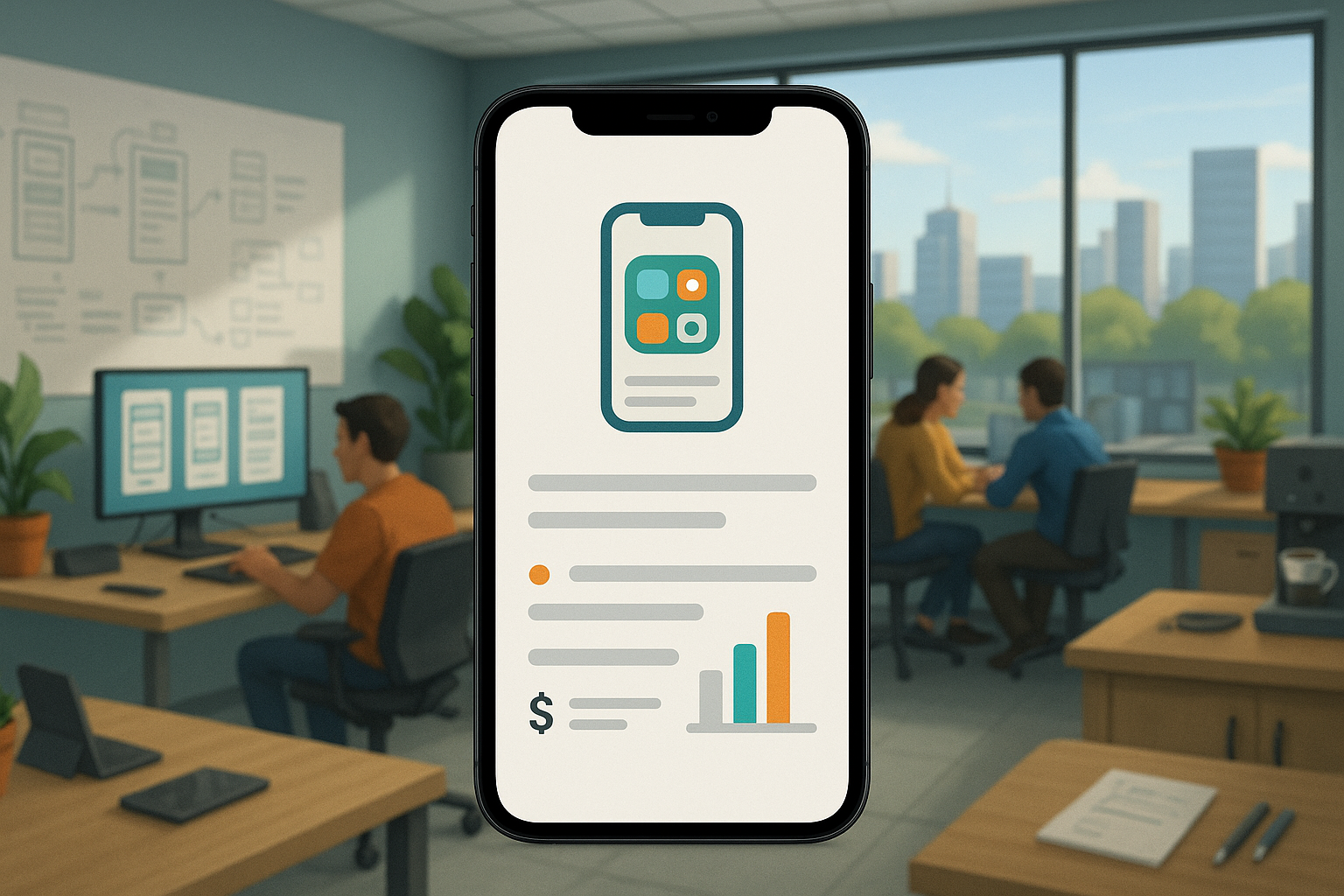Introduction
In the rapidly evolving landscape of digital interaction, voice is no longer a futuristic concept—it’s a present-day reality. Amazon’s Alexa has become a household name, fundamentally changing how users interact with technology, from controlling smart home devices to accessing information and entertainment. For businesses, this presents a monumental opportunity to connect with customers on a new, more intuitive level. However, seizing this opportunity by developing a custom Alexa Skill is fraught with technical complexities that can quickly overwhelm even experienced in-house development teams. The path from concept to a functioning, reliable Skill is paved with potential pitfalls, from arcane formatting requirements to cross-regional compatibility issues.
This article serves as a comprehensive guide to Alexa app development. We will demystify what an Alexa Skill is, explore the significant reasons why building one in-house is so difficult, and outline the various types of Skills you can create. We will also touch upon the real costs of development and introduce the top agencies that can turn your voice-first vision into reality.
As a top US AI-powered app development firm with over 20 years of experience, we at MetaCTO specialize in not just building standalone applications but in seamlessly integrating sophisticated technologies like Alexa into a cohesive mobile strategy. We understand that a voice interface is often one powerful component of a larger digital ecosystem. This guide will show you how to navigate the challenges of Alexa development and how partnering with an expert firm like ours can ensure your project’s success, transforming a complex technical endeavor into a market-ready product that engages users and drives growth.
What is an Alexa App?
While many users refer to them as “Alexa apps,” the official term for these voice-driven capabilities is Alexa Skills. Think of a Skill as an application for your Alexa-enabled device, like a smartphone app, but one you interact with using your voice. When a user asks Alexa to perform a task that isn’t native to the device—like ordering a pizza, playing a specific podcast, or controlling a third-party smart light—they are invoking a Skill built by a developer.
At its core, an Alexa Skill is a set of code hosted in the cloud that processes and responds to user voice commands. When a user speaks to their Echo device, the audio is sent to the Alexa Voice Service (AVS). AVS uses natural language understanding (NLU) to interpret the user’s intent and routes the request to the appropriate Skill. The Skill’s backend code, often running on a service like AWS Lambda, executes the necessary logic—whether it’s looking up information, interacting with another web service, or sending a command to a physical device—and then formulates a response. This response is sent back through AVS, which converts the text to speech and delivers it to the user through their device.
This architecture is what allows for a vast and open ecosystem. Brands, developers, and hobbyists can create Skills for virtually any purpose, extending Alexa’s capabilities far beyond its original design. These Skills fall into several categories, including custom Skills that offer unique interactions, smart home Skills for device control, and flash briefing Skills for news updates, among others. By building a Skill, you are creating a new, frictionless way for customers to engage with your brand, product, or service directly through the power of voice.
Reasons That It Is Difficult to Develop an Alexa App In-House
Embarking on Alexa Skill development may seem straightforward, especially with Amazon providing free developer accounts and extensive documentation. However, the reality is that building a robust, reliable, and user-friendly Skill is a highly technical and nuanced process. In-house teams often encounter a steep learning curve and a host of frustrating challenges that can lead to project delays, budget overruns, or a subpar final product. Here are some of the most common and significant difficulties.
Technical Challenges in Skill Development
The development process itself is riddled with precise requirements that leave little room for error.
1. Device Discovery Failures
One of the first interactions a user has with a smart home Skill is device discovery. If this fails, the user cannot proceed. Several issues can cause this initial step to falter.
- Incorrectly Formatted Responses: The Skill must respond to a
Discoverdirective from Alexa with a perfectly formatted message. A single typo, an extra comma, or an incorrect object structure in the JSON response can cause the entire process to fail, leading to the dreaded “No new devices found” message. Developers must meticulously compare their response formatting against Amazon’s official samples. - Multi-Device Debugging: When a Skill is designed to discover multiple devices or controllers simultaneously, pinpointing the source of a discovery error becomes exponentially more difficult. An issue with a single device’s payload can prevent all devices from being discovered, forcing developers into a tedious process of elimination to find the culprit.
- Regional Inconsistencies: A Skill that works perfectly in one region (e.g., US-East) may fail certification because it’s not discoverable in another (e.g., EU-West). This often happens when one or more regional endpoints for the Skill’s cloud service fail to return the list of devices. Furthermore, if a Skill’s discovery response returns devices using interfaces that are not available in all target regions, discovery will fail in those specific regions. This necessitates rigorous, region-by-region testing, a task that is often overlooked by teams unfamiliar with the Alexa ecosystem.
2. Response and Timeout Issues
Even if a device is discovered successfully, the Skill must remain responsive during operation. When a user gives a command, a complex chain of events is triggered, and any weak link can break the user experience.
- The “Not Responding” Message: A common user complaint is that Alexa reports a device “is not responding,” even when the smart device itself (like a lightbulb) correctly performs the action. This paradox usually occurs because the Skill’s backend, typically an AWS Lambda function, fails to send a confirmation back to Alexa that the directive was handled. The physical action and the digital confirmation are two separate steps, and both must succeed.
- The 8-Second Rule: Alexa is impatient. It will wait a maximum of 8 seconds for a Skill to respond to a directive before timing out. If a developer’s device cloud or backend service takes too long to process a command and respond, Alexa will give up and inform the user the device is not responding.
- Lambda Timeout Conflicts: By default, AWS Lambda functions have an execution timeout of just 3 seconds. If a Skill’s Lambda function calls a device cloud that takes 4 seconds to respond, the Lambda function itself will time out before it can ever send a response to Alexa. Developers must ensure their Lambda timeout is configured appropriately and, more importantly, that their entire backend infrastructure is optimized for speed to stay within Alexa’s 8-second window.
3. Payload and Utterance Complexity
The data exchanged between a Skill and Alexa, known as the payload, must be perfect. Likewise, the phrases that trigger actions, or utterances, require careful design.
- Strict Payload Formatting: The JSON response payload has a rigid structure. The spelling and casing of every parameter, the nesting of objects, and the values in the header’s
namespaceandnameparameters must exactly match the documentation. This can be especially challenging because the required format can vary slightly depending on the device controller being implemented. - Incomplete State Reporting: For smart home devices, a Skill must be able to report on the state of all its properties when requested (a
StateReport). Failing to report all required properties can lead to inconsistent behavior and a poor user experience. - Utterance Ambiguity: A developer might implement an interface and find that a specific utterance like “Alexa, turn on the light” works perfectly. However, a user might naturally say something slightly different, like “Alexa, switch on the light,” which may not work without explicit configuration. Designing a comprehensive set of utterances that covers the many ways users might phrase a command is a significant challenge in creating a natural-feeling voice experience.
Challenges of Integrating Alexa into Mobile Apps
For many brands, an Alexa Skill isn’t a standalone product but an extension of an existing mobile app and digital ecosystem. This integration introduces another layer of complexity. As experts in custom mobile app development, we know these challenges intimately.
- Dependency on an Evolving Platform: When you build for Alexa, you are building on someone else’s platform. Brands are beholden to Amazon’s always-evolving technical requirements, design guidelines, and API constraints. A change on Amazon’s end can require you to update your Skill and potentially your mobile app integration.
- Feature and Design Restrictions: Your vision for a voice experience may be constrained by what the Alexa platform allows for third-party developers. Alexa imposes boundaries that can limit features and control over the user interface, especially for screen-based Alexa devices where the visual experience is tightly controlled by Amazon.
Navigating these in-house development and integration challenges requires specialized expertise, significant testing resources, and a deep understanding of the voice ecosystem. This is why many businesses choose to partner with an experienced development agency. A firm like MetaCTO can help you avoid these pitfalls, manage the platform’s constraints, and ensure your Alexa Skill integrates seamlessly with your broader AI development and mobile strategy.
Different Types of Alexa Apps
The Alexa platform is not a one-size-fits-all solution. It allows developers to create a wide variety of Skills, each tailored to a specific type of interaction or purpose. Understanding these different categories is crucial for defining the scope of your project and aligning the Skill’s capabilities with your business goals.
Here are the primary types of Alexa Skills you can develop:
-
SMART HOME Skills: This is one of the most popular and powerful categories. Smart Home Skills allow users to control cloud-connected devices like lights, thermostats, locks, cameras, and kitchen appliances with their voice. The development for these Skills follows the Smart Home Skill API, a standardized model that defines device capabilities (like
PowerControllerfor turning things on/off orTemperatureSensorfor reporting temperature). This standardization allows users to control devices from different brands with consistent commands (e.g., “Alexa, set the temperature to 72 degrees”). -
Games, FUN & GAMES Skills: This broad category encompasses everything from interactive trivia and adventure games to joke-tellers and soundscape generators. These Skills are highly creative and focus on user engagement and entertainment. They often require sophisticated logic to manage game state, user scores, and branching conversational paths, making them a great way to showcase a brand’s personality and build a memorable user experience.
-
Audio Skills: If your brand is in the podcasting, radio, or music streaming space, the Audio Skill is for you. This allows you to stream audio content directly to Alexa-enabled devices. Users can play, pause, resume, and ask for specific content from your service. Gimlet Media, a well-known podcast company, leverages its expertise in audio storytelling to create premium skills of this type.
-
NEWS Skills: This category includes Flash Briefing Skills, which allow content creators to provide brief, pre-recorded audio or text-to-speech updates as part of a user’s daily news summary. When a user says, “Alexa, what’s my Flash Briefing?” your Skill’s content can be included alongside updates from major news providers. This is an excellent way for brands to deliver regular, bite-sized content to a dedicated audience.
-
Health & Wellness Skills: This category is designed for Skills that provide health-related information, track fitness goals, or offer guided meditations and workouts. Given the sensitive nature of health data, these Skills often have additional policy requirements to ensure user privacy and safety. They can be a powerful tool for healthcare providers, fitness brands, and wellness companies to support their users’ goals.
-
ENTERTAINMENT Skills: While overlapping with games and fun, this category often includes Skills tied to movie and TV show information, celebrity facts, or other entertainment-related content. It provides another avenue for media companies and brands to engage with their fans and promote their properties through interactive voice experiences.
Choosing the right type of Skill is the first step in the development process. Your choice will determine which APIs you use, what features you can implement, and how you will ultimately engage with your target audience.
Cost Estimate for Developing an Alexa App
One of the first questions any business asks is, “What will this cost?” When it comes to Alexa Skill development, the answer is complex.
The good news is that the barrier to entry is low. Amazon provides a free developer account, which gives you access to the Alexa Skills Kit (ASK), the collection of APIs, tools, and documentation needed to start building. However, this is where the “free” part ends. The true cost of developing a professional, market-ready Alexa Skill lies not in platform access fees but in the resources required to build, test, and maintain it.
The primary cost driver is development time and expertise. As detailed earlier, building a Skill is not a simple task. It requires developers who are proficient in:
- Cloud services (typically AWS Lambda)
- Programming languages like Node.js, Python, or Java
- Voice user interface (VUI) design principles
- Navigating Amazon’s specific and often rigid API and JSON formatting requirements
- Rigorous, multi-regional testing and debugging
An in-house team without this specific experience will spend significant time on the learning curve, leading to higher internal costs and a longer time to market.
The complexity of the Skill is another major factor.
- A simple Flash Briefing Skill with static content will be on the lower end of the cost spectrum.
- A custom Skill with complex, dynamic conversational logic, like an interactive game or a reservation booking system, will require significantly more development.
- A Smart Home Skill that must securely integrate with a proprietary device cloud and undergo extensive testing and certification represents a substantial investment.
Finally, you must consider the costs of integration and maintenance. If the Skill needs to connect with your existing mobile app, CRM, or other backend systems, this will add to the development scope. Furthermore, a Skill is not a “set it and forget it” product. Ongoing maintenance is required to fix bugs, adapt to changes in the Alexa platform, and add new features to keep users engaged.
Attempting to build in-house can lead to unpredictable costs as your team navigates unforeseen technical hurdles. Partnering with a specialized agency provides a more predictable path. An experienced firm can give you a clear estimate based on the scope, leverage their existing knowledge to build efficiently, and help you avoid the costly mistakes that come from inexperience. While the upfront investment may be higher than reassigning internal developers, the total cost of ownership is often lower due to a faster launch, a higher quality product, and a reduced risk of a failed project requiring a complete project rescue.
Top Alexa App Development Companies
Choosing the right development partner is critical to the success of your Alexa project. You need a team that not only understands the technology but also has a strategic vision for how voice can integrate with your business. While many agencies can build a Skill, the best ones bring a wealth of experience, a proven process, and a portfolio of successful projects.
1. MetaCTO
As a premier mobile app development agency, we at MetaCTO are uniquely positioned to deliver comprehensive Alexa solutions. We don’t just build isolated voice Skills; we architect integrated digital experiences. With over 20 years of app development experience, more than 120 successful projects, and a 5-star rating on Clutch, our expertise lies in creating robust mobile apps and seamlessly integrating AI and voice technologies like Alexa to build, grow, and monetize your entire digital platform.
What sets us apart is our holistic approach. We understand that for most businesses, an Alexa Skill is one touchpoint in a larger customer journey that likely includes a mobile app. We specialize in overcoming the technical challenges of integrating Alexa into a mobile ecosystem. We navigate the feature restrictions and evolving constraints of the Alexa platform by building powerful, complementary mobile applications that provide a rich, full-featured experience. Our process covers every stage:
- Validate: We can help you launch a Rapid MVP in 90 days to test your idea, gather feedback, and secure funding.
- Build: Our expert team handles the entire process—from strategy and design to development and launch—ensuring your Alexa Skill and mobile app work in perfect harmony.
- Grow & Monetize: We use data-driven strategies to acquire users, improve engagement, and implement effective monetization models for your entire application ecosystem.
For brands that trust us, like Liverpool FC and The Carlyle Group, we deliver technology solutions that drive business goals. If you’re looking to do more than just launch a Skill—if you’re looking to build a cohesive, AI-powered digital product—we are the ideal partner.
2. Digitas
Digitas is The Connected Marketing Agency, committed to helping brands connect with people through what they call Truth, Connection, and Wonder. They build Alexa Skills that are powered by a combination of Experience Design, Technology, Strategy, and Search Data Analytics. Their focus is on creating sustainable and flexible voice applications that are backed by data, extended by platform thinking, and rooted in best practices.
3. EasyVoice
EasyVoice utilizes best-in-class design and development methods to deliver exceptional results customized to a client’s specific goals and outcome measures. They have broad expertise, developing custom, smart home, flash briefing, video, music, and list skills on Alexa devices. Their core focus is on building natural voice experiences for users.
4. Gimlet Media
Gimlet Media is both a podcast and a voice company. They leverage their deep expertise in audio storytelling and sound design to develop premium Alexa Skills. A key part of their offering is their ability to promote the skills they build across their extensive podcast network, providing built-in marketing for their clients.
5. Matchbox
Matchbox is an experienced voice interaction design and development studio. They have a portfolio of published Alexa Skills and have also created tools to aid in Alexa development, showcasing their deep technical involvement with the platform.
6. Mobiquity
Mobiquity is a digital engagement provider that designs and delivers Alexa Skills for Fortune 500 companies. Their work focuses on creating data-driven and connected innovation, positioning voice as a key part of a larger digital transformation strategy for major enterprises.
7. MOSSA
MOSSA positions itself as a voice-first one-stop-shop, offering a comprehensive range of services. They work with top global brands to design and deliver award-winning Alexa Voice Skill products and experiences, handling projects from concept to completion.
8. Polar Night Studio
Polar Night Studio has carved out a niche as an accomplished producer of interactive audio content. They specialize in creating interactive audiobooks and RPGs (role-playing games) for Alexa-enabled devices, along with other types of skills.
9. VoiceXP
VoiceXP is trusted by global brands as a one-stop-shop offering what they term the complete Voice Experience™. They are the highest-rated managed SaaS provider for both enterprise-grade internal and external Skills, focusing on scalable voice solutions for businesses.
10. Wunderman Thompson Mobile
Wunderman Thompson Mobile is a digital agency with broad specialization across many platforms. In addition to designing and developing Alexa Skills, they also create applications for handsets, tablets, connected devices, wearables, and IoT, making them a good choice for projects requiring a multi-platform presence.
11. XAPPmedia
XAPPmedia is a pioneer in interactive voice experiences. They offer a full suite of services for leading brands and publishers, including the design, development, hosting, and management of custom Alexa Skills.
Conclusion
The journey into Alexa app development is both exciting and challenging. As we’ve explored, creating a high-quality, reliable Alexa Skill requires navigating a minefield of technical obstacles, from ensuring perfect device discovery and response formatting to managing tight server timeouts and designing intuitive voice commands. The cost of development extends far beyond the free developer account, encompassing the deep expertise and rigorous testing necessary to bring a polished product to market. The platform’s versatility, offering everything from smart home controls to interactive games, provides endless opportunities for brands to connect with users in new and meaningful ways.
While many talented agencies can build a standalone Skill, the future of digital engagement lies in integrated experiences. A voice command should feel like a natural extension of a brand’s mobile app and overall digital presence. This is where we at MetaCTO excel. We don’t just see a voice Skill; we see a critical component of your growth strategy. Our expertise in mobile app monetization and user growth ensures that your investment in voice technology delivers a real return.
If you are ready to move beyond the complexities and build a powerful voice experience that captivates users and integrates seamlessly with your products, then it’s time to talk to an expert.
Talk with an Alexa expert at MetaCTO to integrate the power of voice into your product today.






